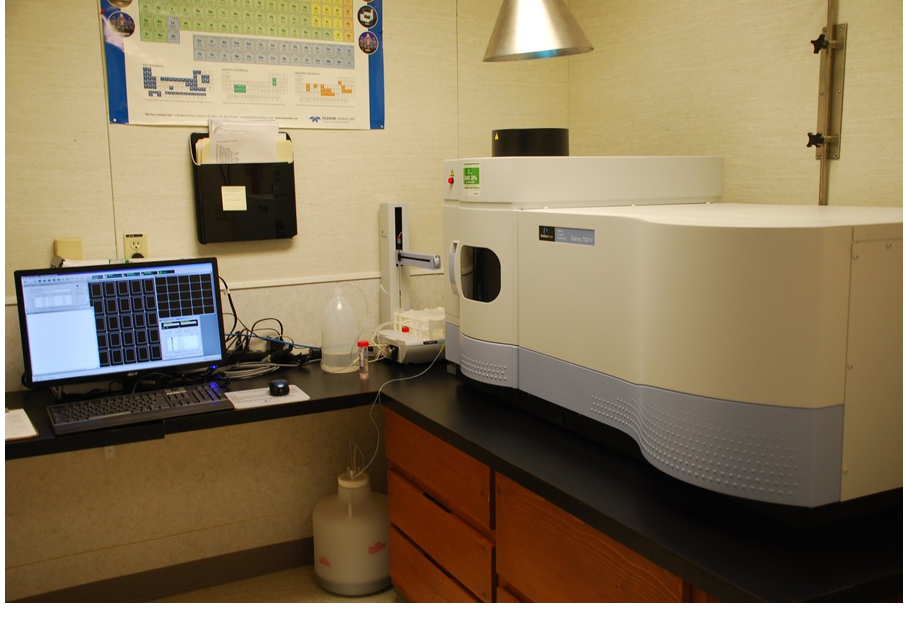Molecular Characterization Testing
Savant Labs’ molecular characterization capabilities include methods and techniques to identify a wide variety of compounds, chemical groups, molecular structure, molecular weight, and general properties.
- Active Ingredients
- Additives
- Contaminants
- Fillers
- Impurities
- Plastics
- Polymers
- Solvents
- Other Unknown Materials
This equipment includes:
- TGA-Determine the amount of highly volatile matter, medium volatile matter, combustible material, and ash content of compounds.
- FTIR – Detection of contaminants (soot, water, glycol, unburned fuel), degradation (caused by oxidation, nitration, sulfur compounds or ester breakdown) and additives in a sample.
- ICP - Analysis of a broad range of elements (Al, Sb, Ba, B, Ca, Cr, Cu, Fe, Pb, Mg, Mo, Ni, P, Si, Ag, Na, Sn, Ti, Zn) using Inductively Coupled Plasma Emission Spectrometer (ICP). The test shows the concentration of the foregoing metal and non-metal-containing components present in the engine oil formulation. It also provides information on some forms of contamination from additive processing and formulation. Reported in parts per million.
- GC FID –Detection of hydrocarbons. The boiling point range distribution and cut point fractions of petroleum fraction provide insight into the composition of a sample. The components of the oil are separated by the GC and detected by a flame-ionization detector (FID).
- XRF - A non-destructive analytical technique using x-ray fluorescence to determine the elemental composition of materials.
- GC MS - Gas chromatography and mass spectrometry analytical testing systems identify compounds with low detection limits and the potential for quantitative analysis. different substances within the sample.
From the essential ICP to the complexities of data comparison and/or interpretation, Savant Labs look forward to offering our decades of experience and quality services to meet your lubricant testing needs.
ASTM International Method
ASTM D94 Saponification Number
ASTM D189 Carbon Residue, Conradson
ASTM D482 Total Ash
ASTM D524 Carbon Residue, Ramsbottom
ASTM D611 Aniline Point
ASTM D613 Cetane Number
ASTM D664 Acid Number
ASTM D874 Sulfated Ash
ASTM D893 Insolubles, Pentane
ASTM D974 Acid Number
ASTM D974 Base Number
ASTM D976 & D4737 Cetane Index (Calculated from D1298 & D86)
ASTM D1319 Hydrocarbon Type
ASTM D1662 Sulfur, Active
ASTM D1957 Hydroxyl Number
ASTM D2007 Clay Gel Analysis
ASTM D2273 Trace Sediment
ASTM D2622 Sulfur by XRF - Wavelength Dispersive
ASTM D2699 Octane Number (Research Rating – RON)
ASTM D2700 Octane Number (Motor Rating – MON)
ASTM D2887 Gas Chromatography - Carbon Distribution
ASTM D2896 Base Number
ASTM D2982 Glycol
ASTM D3238 Carbon Distribution Analysis
ASTM D3703 Peroxide Value
ASTM D4291 Glycol
ASTM D4294 Sulfur by XRF - Energy Dispersive
ASTM D4530 Carbon Residue, Micro
ASTM D4629 Nitrogen by Chemiluminescence
ASTM D4737 Cetane Index (Calculated from D1298 & D86)
ASTM D4739 Base Number
ASTM D4927 Sulfur Content for Automatic Transmission Fluid by XRF
ASTM D4951 Elemental Analysis by Inductively Coupled Plasma, Wear Metals
ASTM D5185 Elemental Analysis by Inductively Coupled Plasma (No S)
ASTM D5185 Sulfur by Elemental Analysis by Inductively Coupled Plasma
ASTM D5186 Aromatics in Diesel Fuel
ASTM D5291 Carbon Hydrogen Nitrogen Content
ASTM D5291 Nitrogen - Carlo Erba
ASTM D5453 Sulfur
ASTM D5453 & D5762 Sulfur & Nitrogen Package
ASTM D5554 Iodine Value
ASTM D5762 Nitrogen
ASTM D5769 Benzene, Toluene, Total Aromatics by GC/MS
ASTM D5827 Sulfate Analysis
ASTM D6130 Elemental Analysis by ICP, Aqueous / Coolants / Sulfur, 5 elements
ASTM D6304 Water by Karl Fischer
ASTM D6443 Chlorine - XRF Wavelength Dispersive
ASTM D6560 Asphaltene Content
| ASTM International Method | |
|---|---|
| ASTM D94 | Saponification Number |
| ASTM D189 | Carbon Residue, Conradson |
| ASTM D482 | Total Ash |
| ASTM D524 | Carbon Residue, Ramsbottom |
| ASTM D611 | Aniline Point |
| ASTM D613 | Cetane Number |
| ASTM D664 | Acid Number |
| ASTM D874 | Sulfated Ash |
| ASTM D893 | Insolubles, Pentane |
| ASTM D974 | Acid Number |
| ASTM D974 | Base Number |
| ASTM D976 & D4737 | Cetane Index (Calculated from D1298 & D86) |
| ASTM D1319 | Hydrocarbon Type |
| ASTM D1662 | Sulfur, Active |
| ASTM D1957 | Hydroxyl Number |
| ASTM D2007 | Clay Gel Analysis |
| ASTM D2273 | Trace Sediment |
| ASTM D2622 | Sulfur by XRF - Wavelength Dispersive |
| ASTM D2699 | Octane Number (Research Rating – RON) |
| ASTM D2700 | Octane Number (Motor Rating – MON) |
| ASTM D2887 | Gas Chromatography - Carbon Distribution |
| ASTM D2896 | Base Number |
| ASTM D2982 | Glycol |
| ASTM D3238 | Carbon Distribution Analysis |
| ASTM D3703 | Peroxide Value |
| ASTM D4291 | Glycol |
| ASTM D4294 | Sulfur by XRF - Energy Dispersive |
| ASTM D4530 | Carbon Residue, Micro |
| ASTM D4629 | Nitrogen by Chemiluminescence |
| ASTM D4737 | Cetane Index (Calculated from D1298 & D86) |
| ASTM D4739 | Base Number |
| ASTM D4927 | Sulfur Content for Automatic Transmission Fluid by XRF |
| ASTM D4951 | Elemental Analysis by Inductively Coupled Plasma, Wear Metals |
| ASTM D5185 | Elemental Analysis by Inductively Coupled Plasma (No S) |
| ASTM D5185 | Sulfur by Elemental Analysis by Inductively Coupled Plasma |
| ASTM D5186 | Aromatics in Diesel Fuel |
| ASTM D5291 | Carbon Hydrogen Nitrogen Content |
| ASTM D5291 | Nitrogen - Carlo Erba |
| ASTM D5453 | Sulfur |
| ASTM D5453 & D5762 | Sulfur & Nitrogen Package |
| ASTM D5554 | Iodine Value |
| ASTM D5762 | Nitrogen |
| ASTM D5769 | Benzene, Toluene, Total Aromatics by GC/MS |
| ASTM D5827 | Sulfate Analysis |
| ASTM D6130 | Elemental Analysis by ICP, Aqueous / Coolants / Sulfur, 5 elements |
| ASTM D6304 | Water by Karl Fischer |
| ASTM D6443 | Chlorine - XRF Wavelength Dispersive |
| ASTM D6560 | Asphaltene Content |

